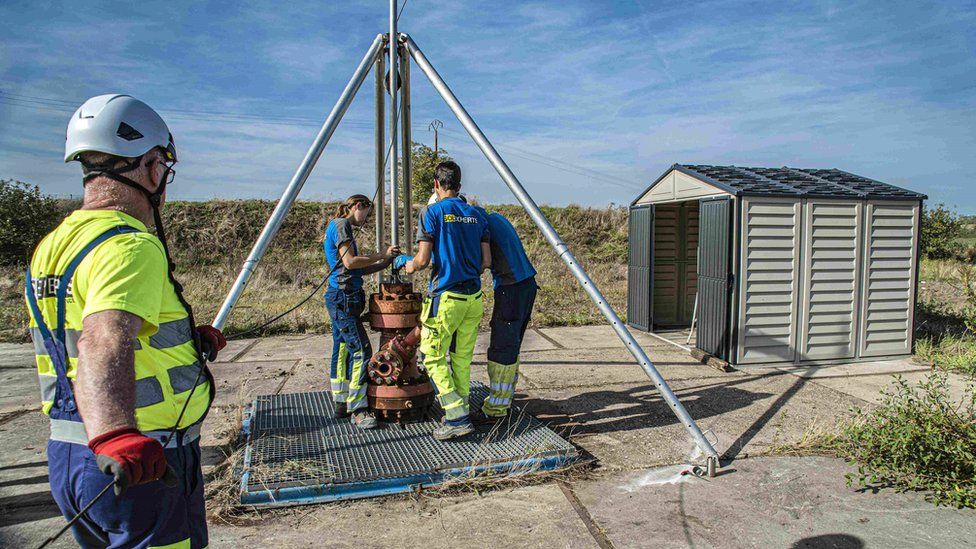-

-
-
Loading

Loading

Researchers in France have discovered a large deposit of hydrogen while searching for methane in the Lorraine Basin. This unexpected find has generated excitement because many believe that hydrogen will play a crucial role in achieving a net-zero global economy. Unlike other fuels, hydrogen does not produce CO2 when used or in industrial processes. However, the current methods of hydrogen production are largely not environmentally friendly. Less than 1% of global hydrogen production is emission-free. There are different types of hydrogen, including grey, blue, black, and green. Green hydrogen, created through the electrolysis of water, is the most environmentally friendly option but is expensive and in short supply. Natural hydrogen, also known as gold or white hydrogen, could potentially provide an important source of emission-free hydrogen. Natural hydrogen is produced through the interaction of groundwater with iron-rich minerals. While natural hydrogen deposits have been found in various locations, the French discovery represents the largest deposit ever found, estimated to meet the global demand for over two years. The US Geological Survey estimates that there may be thousands or even billions of megatonnes of undiscovered hydrogen deposits worldwide, but not all of them will be accessible. However, there is still potential for hundreds of years of hydrogen supply from accessible deposits. The technology for harvesting hydrogen is already in place, similar to natural gas extraction. While only one facility in Mali currently produces white hydrogen commercially, there are efforts to exploit reserves more widely, such as the US start-up Koloma and prospecting firm Getech. South Australia, in particular, is a focus area for hydrogen exploration. Despite the interest in hydrogen, major energy companies are cautious and waiting for more production data before entering the market. One of the challenges is the lack of a hydrogen market, which hinders the development of hydrogen supply. However, with concerted efforts, hydrogen could become a significant energy solution. Europe leads in hydrogen project proposals, accounting for 35% of global investments, followed by Latin America and North America.